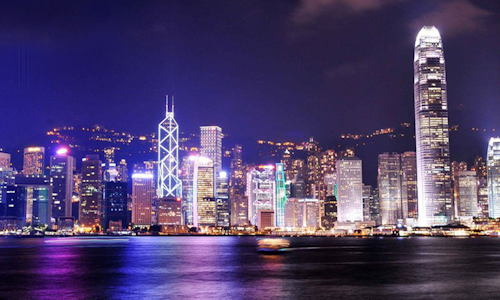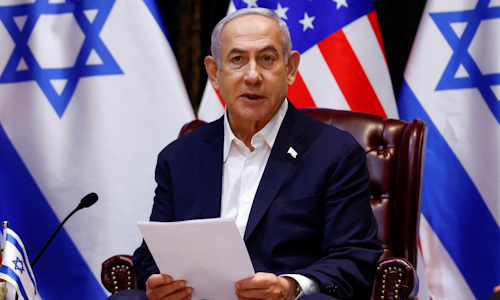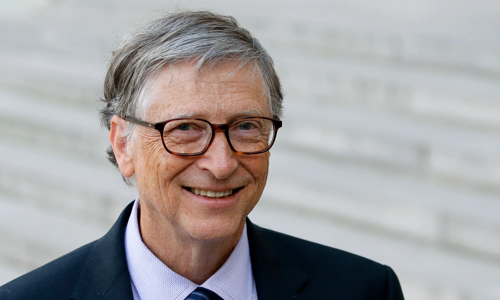By Yu Yongding, Project Syndicate | Jun 2, 2025
While GDP growth is no longer paramount for China’s leaders, it still matters. And, at a time of falling export growth and insufficient domestic consumption, the only way China can reach its growth target is with a bold fiscal expansion that targets a robust increase in infrastructure investment.
BEIJING – In the years following the 2008 global financial crisis, bold stimulus measures enabled China to achieve a V-shaped recovery. Since then, however, the government has largely maintained neutral – even tight – macroeconomic policies. If China is to achieve its growth target for 2025, this must change. In fact, since September 2024, China has reorientated its macroeconomic stance substantially.
Two indicators typically dictate whether a government pursues expansionary or contractionary macroeconomic policies: the rate of economic growth (or the employment rate) and the inflation rate. Low growth calls for expansion (as long as inflation also remains low), and high inflation requires contraction (calibrated not to crush growth). By this standard, the case for expansionary policies in China today is clear. China’s PPI inflation has been in negative territory for the better part of the past 13 years, and its annual average CPI inflation has also been very low, at just 0.2% in 2024. At the same time, China’s GDP growth rate has declined from 10.6% in 2010 to 5% last year.
So, why hadn’t China’s government embraced macroeconomic expansion much earlier? First and foremost, it fears the deterioration of its fiscal position. At the end of 2023, China’s government debt-to-GDP ratio was approaching 61%, and its “augmented government debt-to-GDP ratio” (which includes debt held by local government financing vehicles) had reached nearly 117%. While these levels are much lower than those in most developed economies, they are high by Chinese standards, leaving the government reluctant to raise its budget deficit-to-GDP ratio above 3%.
Late last year, however, China’s Ministry of Finance did acknowledge that the central government has “considerable headroom” for issuing debt and increasing the fiscal deficit – a notable shift from the rhetoric of recent years. Moreover, at last September’s meeting, top Communist Party of China (CPC) officials pledged to strengthen the “counter-cyclical adjustment” of fiscal and monetary policies and to deploy “necessary fiscal spending” to meet growth targets.
For many in China, economic growth is no longer paramount. Instead, their top priority has lately been to eliminate overcapacity – an objective that some fear a new round of stimulus, with its requisite surge in investment, would undermine. But overcapacity is a structural issue, which should be eliminated primarily through market mechanisms, though some supportive policies can also be used.
In any case, GDP growth still matters. And, as it stands, achieving this year’s growth target of 5% will not be an easy task. After all, net export growth makes a significant contribution to growth – 1.5 percentage points in 2024 – and this is likely to take a major hit, given ongoing trade tensions with the United States.
To be sure, in the first quarter of 2025, according to General Administration of Customs office, net exports grew at an annual rate of 50%. But the reason is both obvious and temporary: US importers were hoarding Chinese products ahead of expected tariff increases. Over the course of the year, net-export growth will likely decline sharply, shaving at least one percentage point off China’s GDP growth, according to some estimates.
Slowing export growth is not China’s only problem. Consumption is a function of income, income expectations, and wealth. Fostering the increase in domestic consumption needed to boost aggregate demand is difficult, owing to slower income growth, falling housing prices, and stock-market volatility.
Based on available information, I calculate that, at the end of 2024, final consumption accounted for 56.2% of GDP, and net exports comprised 3.4% of GDP. With total retail sales of social consumer goods (a proxy for final consumption) having grown by 4.6% in the first quarter of 2025, one can reasonably assume that, together, final consumption and net exports will contribute about 2.8 percentage points to China’s GDP growth this year.
If this turns out to be the case, China will be able to reach its 5% growth target only if the third element – capital formation, which accounted for 40.4% of GDP in 2024 – contributes 2.2 percentage points to growth. To achieve this, capital formation would have to grow at a rate of 5.4% this year.
Due to the lack of direct data, fixed-asset investment – comprising manufacturing investment (48.3% in 2024, according to my calculation), real-estate investment (19.5%), and infrastructure investment (32.2%) – is used as a proxy for capital formation. Last year, manufacturing investment grew by 9.2%, while real-estate investment growth declined by 10.6%. If, as seems likely, manufacturing investment maintains its growth momentum (9.2%) in 2025, and real-estate investment slows its decline (-0.5%), they will together contribute about 3.5 percentage points to total fixed-asset investment.
This means that achieving 5.4% growth in fixed-asset investment this year will require infrastructure investment to grow by 6% – a materially higher rate than in 2024. (In the first quarter, fixed-asset investment grew by just 4.2%.) While these figures are not precise, owing to insufficient data, they do offer a rough idea of the challenge China faces – namely, to accelerate the rate of infrastructure-investment growth substantially. To this end, a significant increase in government-bond issuance is essential.
There is some promising news: China is targeting a budget deficit-to-GDP ratio of around 4% for 2025 – the highest level since the 2008 global financial crisis. But all signs indicate that the expansion China’s government has planned still won’t be enough. To achieve 5% growth, it will need to go big.
Yu Yongding, a former president of the China Society of World Economics and director of the Institute of World Economics and Politics at the Chinese Academy of Social Sciences, served on the Monetary Policy Committee of the People’s Bank of China from 2004 to 2006.
TIPP Takes
Geopolitics, Geoeconomics, And More
1. Ukrainian Drones Strike Bombers During Major Attack In Russia - TIPP Insights
Ukraine says it completed its biggest long-range attack of the war with Russia, after using smuggled drones to launch a series of strikes on 40 Russian warplanes at four military bases.

2. Second Round Of Russia-Ukraine Peace Talks Yields No Ceasefire Progress - TIPP Insights
The second round of Russia-Ukraine peace talks in Istanbul ended Monday with little progress, despite high tensions after a dramatic Ukrainian drone strike on Russian bombers.

The talks, lasting just over an hour, yielded only an agreement to explore a new prisoner exchange. Ukrainian President Volodymyr Zelensky had hoped the strike, codenamed “Spiderweb,” would pressure Moscow into concessions. Ukraine claims the $7 billion operation hit 41 aircraft and 34% of Russia’s strategic cruise missile fleet.
Still, Russia proposed only a short frontline ceasefire. Ukraine stuck to its demand for a 30-day nationwide truce, calling it a test of Russia’s sincerity.
3. Polish Eurosceptic Nawrocki Wins Presidential Election - TIPP Insights
Nationalist opposition candidate Karol Nawrocki has narrowly won Poland’s presidential election, defeating Warsaw’s liberal mayor Rafal Trzaskowski.

4. North Korea Says Military Ties With Russia To Ensure 'Peace' - AFP
A multilateral sanctions monitoring group including South Korea, the United States, Japan and eight other countries condemned the military cooperation between North Korea and Russia as "unlawful".

In response, Pyongyang said its cooperation with Moscow was "aimed at protecting the sovereignty, territorial integrity and security interests of the states" as well as "ensuring peace and stability in the Eurasian region". The statement by a foreign ministry official described ties with Russia as the "cream of inter-state relations".
5. NSA Whistleblower Edward Snowden Is Now A Registered Russian Taxpayer - RFE/RL
The former U.S. National Security Agency whistleblower, who has lived in Russia since his revelations rocked the U.S. intelligence community in 2013, has a taxpayer identification number, RFE/RL's Russian investigative unit, Systema, has found.

The number, which appears in the database maintained by the Russian Federal Tax Service, also shows Snowden's registered address is in Lyubertsy, a Moscow region suburb better known for drab Soviet-era apartment blocks and 1990s gang lore. Snowden, whom President Vladimir Putin granted citizenship to in September 2022, could not be reached for comment.
6. China Says U.S. Has 'Severely Violated' Tariffs Truce - BBC
China's Ministry of Commerce said Washington has "seriously undermined" the agreement reached during talks in Geneva last month, when both countries lowered tariffs on goods imported from each other.

The spokesperson added that U.S. actions have also severely violated the consensus reached during a phone call in January between China's leader Xi Jinping and President Donald Trump. The comments come after Trump said on Friday that China had "totally violated its agreement with us".
7. Trump To Speak With Xi Jinping ‘Very Soon’ - TIPP Insights
President Donald Trump is expected to hold a phone call with Chinese President Xi Jinping in the coming days, following his recent accusation that Beijing “totally violated” an interim trade deal, on social media platform Truth Social.

Multiple reports suggest the call will likely happen this week. CNBC said the conversation could happen “very soon,” though not today. Politico also cited Trump cabinet officials confirming that trade negotiations with China have stalled, but hinted a Trump-Xi exchange is imminent.
8. China Replaces Its Top Official In Hong Kong - RFA
China’s Ministry of Human Resources and Social Security said it was removing Zheng Yanxiong from several key positions including as director of the Liaison Office of the Central People’s Government in the Hong Kong Special Administrative Region.

Zheng was viewed as the Chinese Communist Party’s top envoy in Hong Kong and a key liaison with Hong Kong’s chief executive, John Lee, who was appointed by China’s State Council as the head of the Hong Kong government. No reason was given for removing Zheng and if he was being appointed to another position.
9. Regional Chinese Censorship More Aggressive Than National Great Firewall: Study - RFA
Online censorship in China by some regional governments is even more aggressive than enforcement of the national-level ‘Great Firewall’ by the central government, according to a recent study and local sources.

The Great Firewall Report (GFW Report) highlights how the central Chinese province of Henan has adopted its own provincial firewall which is less sophisticated and robust than the central government’s but more volatile and aggressive, blocking significantly more websites than the national-level censorship system.
10. Netanyahu Calls Out Rising Antisemitism After Boulder Attack - TIPP Insights
Israeli Prime Minister Benjamin Netanyahu strongly condemned the recent terrorist attack in Boulder, Colorado, that wounded eight people during a rally supporting 58 hostages held by Hamas in Gaza.

He expressed confidence that U.S. authorities will bring the attacker, Mohamed Sabry Soliman, to justice. Soliman allegedly used a makeshift flamethrower and incendiary devices while shouting “Free Palestine,” according to the FBI.
11. Britain Announces $20b Boost To Make Armed Forces 'Battle Ready' - UPI
British Prime Minister Keir Starmer announced plans to inject an additional $20.3 billion into the country's nuclear weapons program to combat the "threat from Russia" and China and build 12 new nuclear-powered attack submarines.

The new spending is part of a major Strategic Defense Review unveiled by Starmer aims at restoring Britain's fighting capability and making it "war-ready" within two years for a conflict in Europe and/or the Atlantic.
12. EU Pushes U.S. To Cut Steel And Aluminum Tariffs - TIPP Insights
The European Commission is gearing up to press the United States this week to reduce or eliminate tariffs on steel and aluminum, even after President Donald Trump said he would double import duties to 50%.

European Trade Commissioner Maros Sefcovic will meet U.S. Trade Representative Jamieson Greer at an OECD event in Paris on Wednesday, while technical talks continue between the EU and Washington. The EU currently faces 25% steel tariffs and reciprocal duties on many U.S. goods.
13. IAEA Chief Urges ‘More Transparency’ From Iran, Tehran Says It Has ‘Nothing To Hide’ - Al Arabiya
International Atomic Energy Agency director general Rafael Grossi made the comments ahead of a meeting in Cairo with Iran’s top diplomat and chief nuclear negotiator, Abbas Araghchi.

It comes a day after a leaked IAEA report showed Iran has stepped up production of uranium enriched up to 60 percent – close to the roughly 90 percent level needed for atomic weapons. Iran has rejected the IAEA’s findings, calling it a “political” maneuver based on “unreliable and misleading information.”
14. Iran Demands ‘Guarantee’ U.S. Will Lift Sanctions In Nuclear Talks - AFP
Iran pressed the United States for guarantees that it will drop sanctions as a condition for a nuclear deal, after the White House reportedly sent a proposal it deemed “acceptable.”

The United States and Western countries have accused Iran of seeking nuclear weapons, a charge Tehran has repeatedly denied, insisting it needs uranium for civilian power production.
15. Bill Gates To Give Most Of His $200bn Fortune To Africa - BBC
Microsoft founder Bill Gates says that most of his $200bn (£150bn) fortune will be spent on improving health and education services in Africa over the next 20 years.

The 69-year-old said that "by unleashing human potential through health and education, every country in Africa should be on a path to prosperity". Speaking in Ethiopia's capital Addis Ababa, he also urged Africa's young innovators to think about how to build Artificial Intelligence (AI) to improve healthcare on the continent.
16. Russia’s Largest Bank Sberbank Launches Structured Bonds Tied To Bitcoin - CoinDesk
Sberbank, Russia’s largest bank, has introduced a new structured bond that tracks the price of bitcoin BTC and the dollar-to-ruble exchange rate.

Initially available over the counter to a limited pool of qualified investors, the bonds let holders earn based on two variables: the future performance of BTC in U.S. dollars and any strengthening of the dollar relative to the ruble. The announcement comes just after the Bank of Russia said financial institutions in the country can offer cryptocurrency-linked instruments to qualified investors.
17. FDA: COVID-19 Vaccine Choice In Pregnancy Is Personal - HealthDay News
Federal health officials have pulled back a key recommendation that pregnant women get the COVID-19 vaccine – causing sharp criticism from doctors and other experts.

The announcement came from Health and Human Services Secretary Robert F. Kennedy Jr., who said the government will no longer recommend COVID shots for healthy children or pregnant women.
18. CDC Says Healthy Children May Get COVID Vaccine, Contradicting RFK Jr. - UPI Health
The Centers for Disease Control and Prevention now says children without underlying health conditions "may receive" a COVID-19 vaccine, contradicting a directive by Health and Human Services Secretary Robert F. Kennedy Jr. earlier in the week.

The CDC updated the childhood immunization schedule published late Thursday. Kennedy, who said the agency would stop recommending the shots for healthy children, said the guidelines would be changed.









